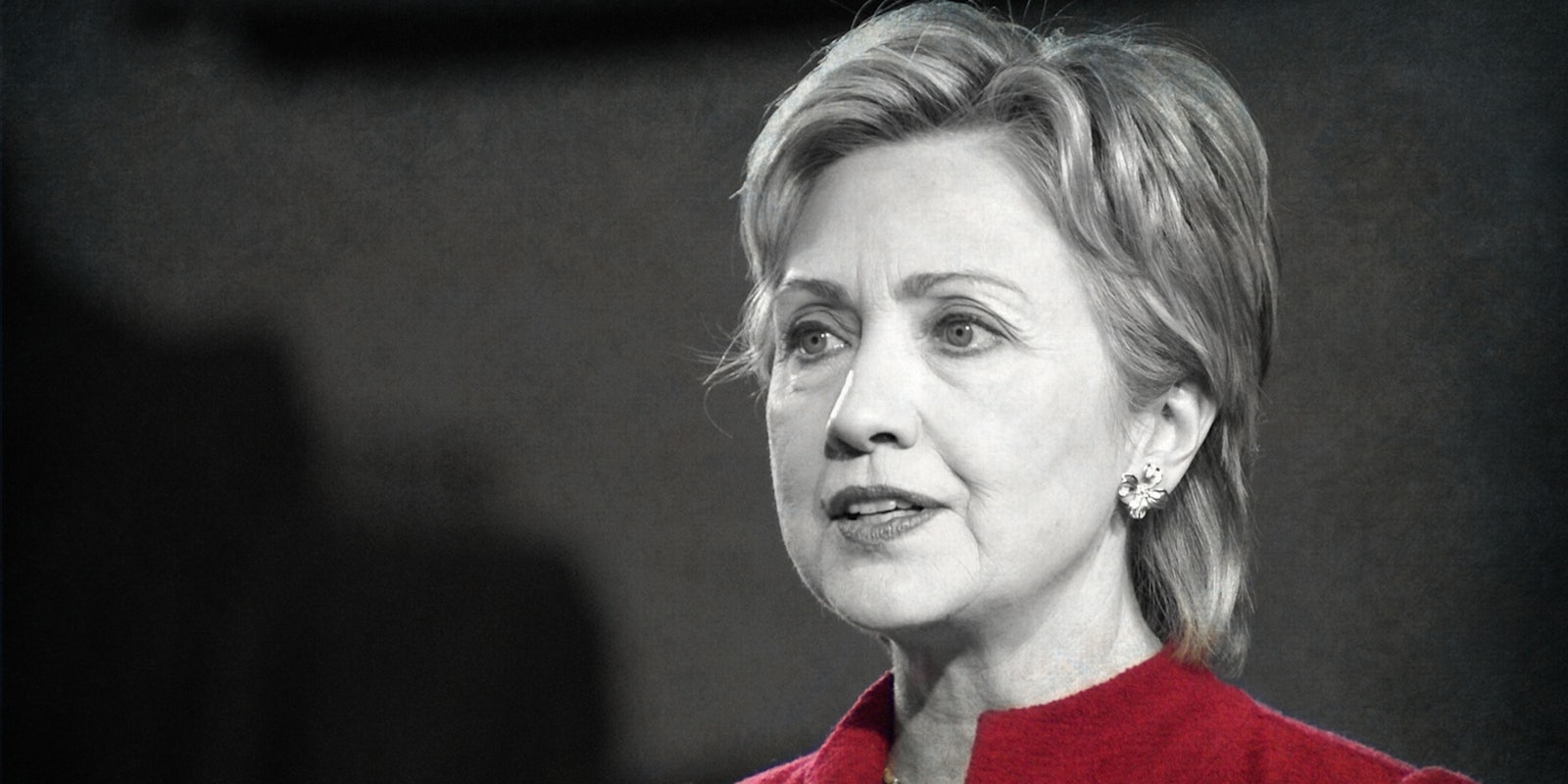Former Secretary of State Hillary Clinton on Tuesday defended herself against allegations that she had disregarded proper email procedures while at the State Department, thus obscuring her activities from public scrutiny.
“Looking back, it would have been better if I’d simply used a second email account,” Clinton said during a press conference after her keynote address at the annual United Nations Women’s Empowerment Principles meeting. “At the time, this didn’t seem like an issue.”
The press conference was Clinton’s attempt to calm a media firestorm stemming from a New York Times report that she did not use or even have a government email account while serving as President Obama‘s first Secretary of State and that her aides had not taken any measures to preserve four years’ worth of emails that were supposed to be archived for public review under federal record-keeping law.
Clinton explained that she decided to use a personal email account “for convenience,” because she “thought it would be easier to carry just one device for my work and for my personal emails instead of two.”
This claim struck many on Twitter as odd, given the ease with which modern smartphones allow users to use multiple email accounts or combine multiple email accounts into a single inbox.
True story: I also merged my work and email accounts because it was more convenient. And it was. End of my story.
— Jack Mirkinson (@jackmirkinson) March 10, 2015
https://twitter.com/lizzieohreally/status/575373046300700674
Clinton also said during the press conference that she deleted 30,000 personal emails—about half of the total message count after her four-year term in office.
After her team had completed the process of selecting work-related emails and sending them to the State Department, “I chose not to keep my private personal emails,” she said.
Asked why she deleted emails she deemed personal if her account was secure, Clinton responded, “They were personal and private, about matters that I believed were in the scope of my personal privacy and that, particularly, of other people.
“I didn’t see any reason to keep them,” she added.
Clinton’s comment that “no one wants their personal emails made public” was met with particular online scorn given that it was her decision to merge work and personal emails in the first place.
https://twitter.com/b_fung/status/575372076749570049
Clinton said that her aides undertook a “thorough process” to select emails for preservation at the State Department, and she called her decision to let the department release all of those emails an “unprecedented step.”
The State Department has said that it is reviewing the 50,000 emails that Clinton’s team deemed worthy of turning over—in printed form—last week. That process is expected to take several months. When it is complete, a department spokesperson said Tuesday, the government will post Clinton’s emails online, beginning with 900 pages of Benghazi-related emails sent to the House committee investigating the Sept. 11, 2012, attack.
“I went above and beyond what I was requested to do,” Clinton said.
Only Clinton and her aides had access to the account, and thus, no independent party was ever in a position to judge her determinations of messages as either “work” or “personal.”
most important thing here: hrc deleted the account so we’ll never know what else she didn’t hand over to state
— Michael S. Schmidt (@nytmike) March 10, 2015
Many lawsuits & investigations hang on whether emails or docs are “relevant” or work-related, often a debatable issue even in good faith.
— Ari Melber (@AriMelber) March 10, 2015
Clinton began shaking her head as soon as a reporter started forming a question about whether she or her staff had deleted any work-related emails.
“I have absolute confidence,” Clinton told reporters, “that everything that could be in any way connected to work is now in the possession of the State Department.”
She added later, “I fully complied with every rule that I was governed by.”
Clinton pointed out that other former Secretaries of State had used personal email accounts while in office, but what distinguished her case from those of her predecessors was the fact that her team set up a private email server, further distancing her records from government subpoenas and complicating journalists’ attempts to hold her accountable.
At the press conference, Clinton rebuffed suggestions of an independent analysis of her home server, saying, “The server will remain private.”
She added that there had been “no security breaches” on that server and that she had never sent classified material in an email.
“I thought using one device would be simpler,” Clinton said when asked if she felt she had made a mistake. “Obviously, it hasn’t worked out that way.”
Photo via marcn/Flickr (CC BY 2.0) | Remix by Fernando Alfonso III


